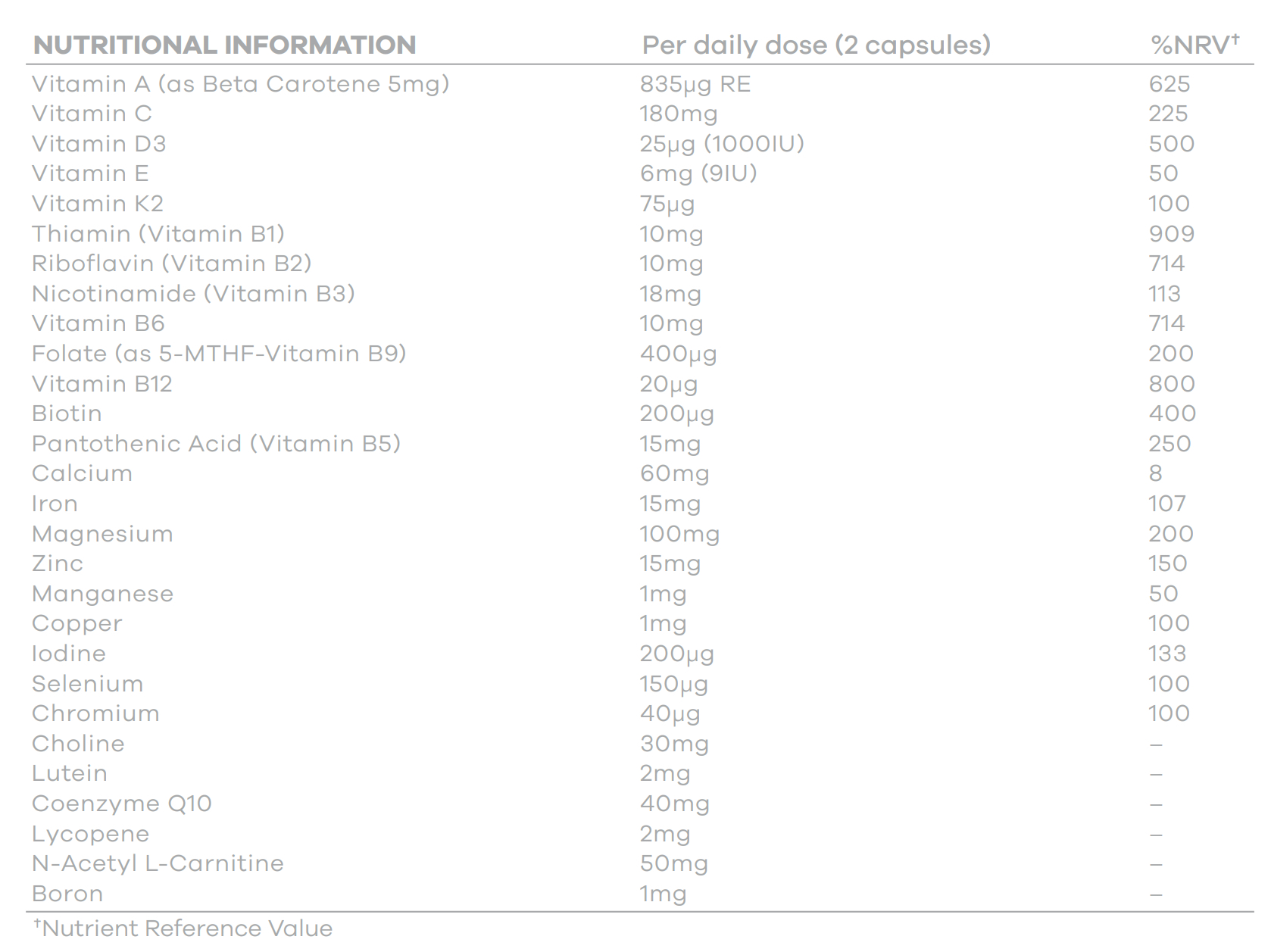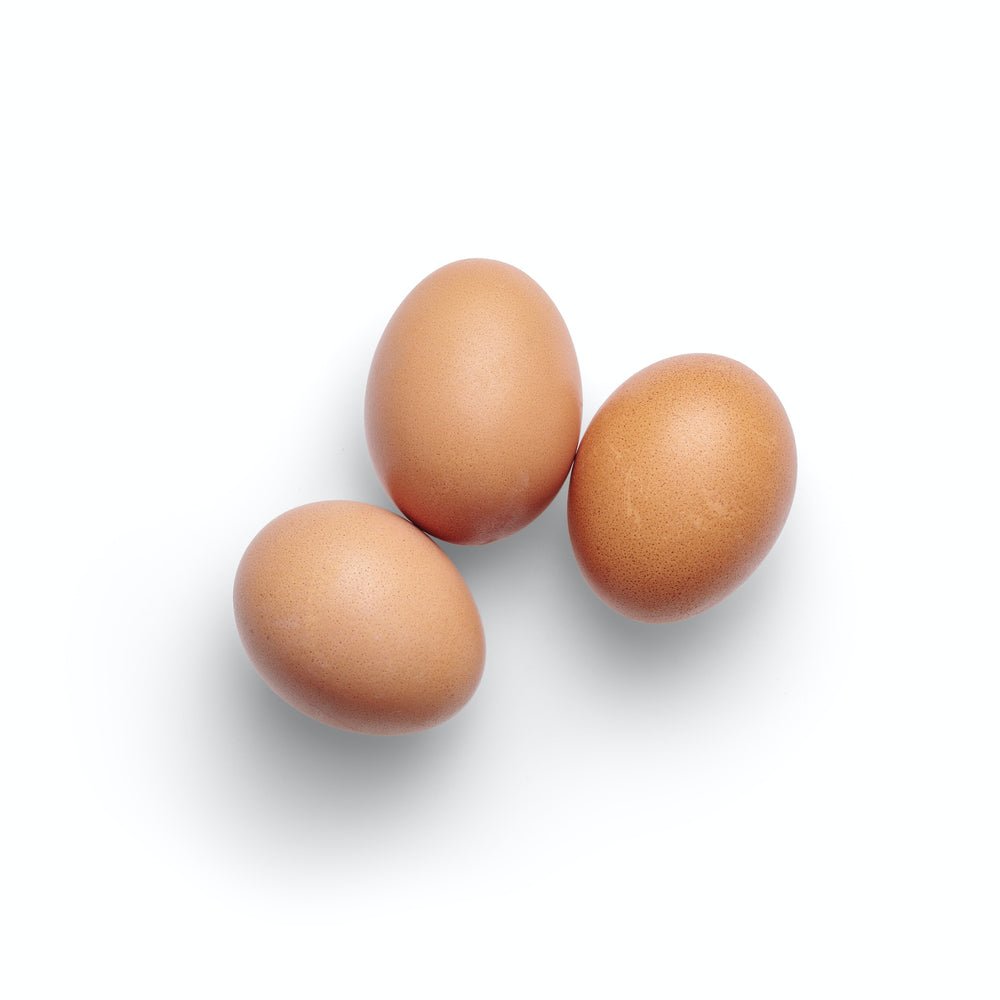
Ingredients:
Brown Rice Powder, Hydroxypropyl Methylcellulose (Vegetable Capsule Shell), Vitamin C (Ascorbic Acid), Calcium Carbonate, Magnesium Oxide, N-Acetyl L-Carnitine, L-Choline Bitartrate, Ferrous Fumarate, Zinc Citrate, Coenzyme Q10, Beta Carotene , Lycopene, Vitamin B3 (Nicotinamide),Vitamin E, Vitamin B5, (Calcium D-Pantothenate), Pyridoxal 5-Phosphate, Vitamin B1 (Thiamine Mononitrate), Vitamin B2 (Riboflavin), Vitamin D3, Manganese Gluconate, Magnesium Stearate, Silicon Dioxide, Disodium Tetraborate (Boron), Copper Gluconate, Vitamin K2 MK7 (Menaquinone-7), Marigold flower (Lutein), Quatrefolic® ((65)-5-Methyltetrahydrofolic Acid, Glucosamine salt) (Folate), Chromium Picolinate, Sodium Selenite Anhydrous (Selenium), Potassium Iodine, Biotin, Vitamin B12 (Methylcobalamin).
Allergens: May contain soya.












.jpg?v=1738933528880&options=w_1000)






